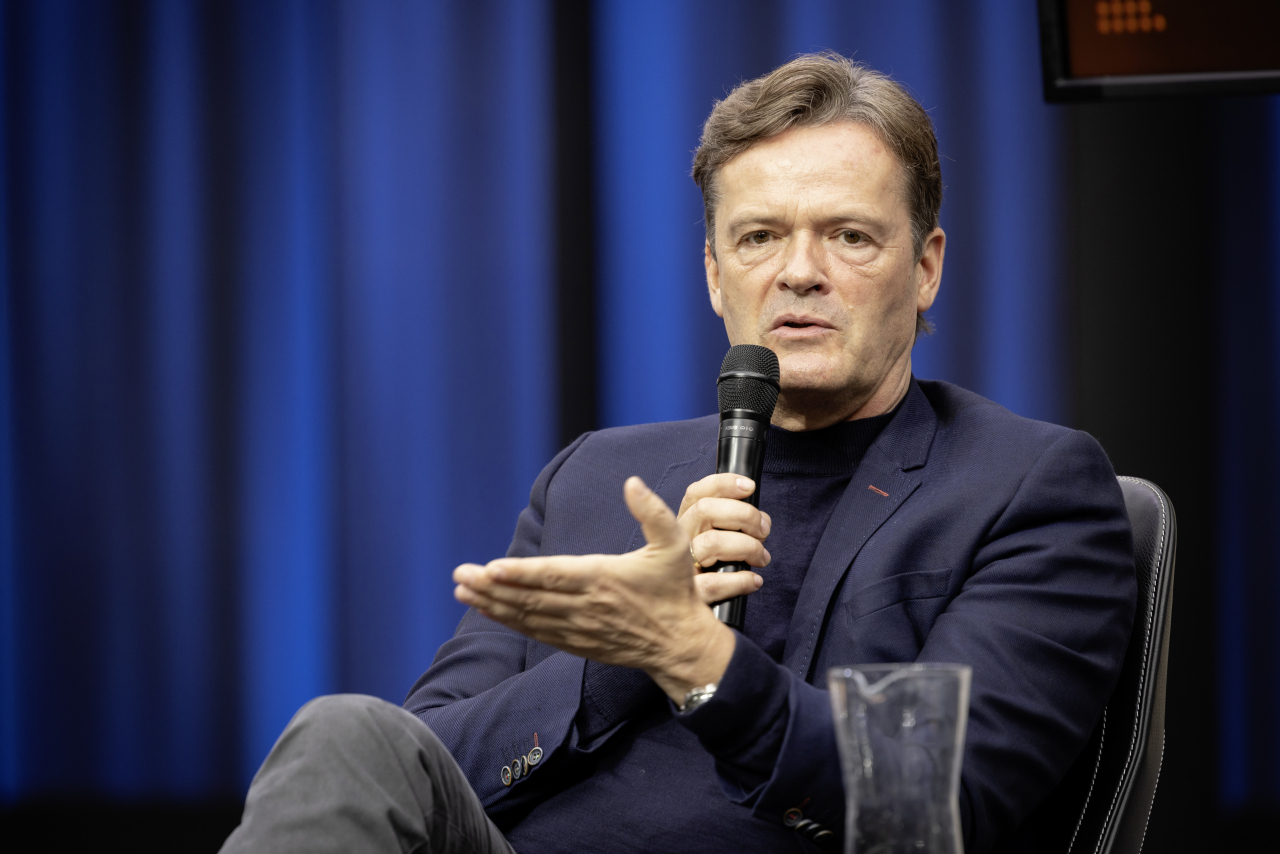Market Now
[CES 2023] [Herald Interview] Mercedes-Benz’s high-power charger coming to Korea in 2024
 |
Markus Schafer, Mercedes-Benz Group AG board member and chief technology officer, speaks about the launch of the carmaker's high-power charging network across the globe at the Consumer Electronics Show in Las Vegas, Thursday. (Mercedes-Benz Group AG) |
Korea Herald correspondent
LAS VEGAS -- Mercedes-Benz will look to introduce its newly announced high-power charging network to South Korea by the end of 2024, the global carmaker’s chief technology officer said Thursday.
“Korea is a huge market … it’s the fourth largest market for us,” Markus Schafer, Mercedes-Benz Group AG board member and chief technology officer, told a group of Korean and Japanese reporters in an interview conducted a few hours after the carmaker announced a plan to launch its own global high-power charging network at the Consumer Electronics Show 2023 in Las Vegas.
The CTO explained that the global carmaker will have to see how electric vehicle sales perform in Korea and how Korean customers react to Mercedes-Benz’s EVs, pointing out that some of its EV models have not yet reached the Korean market.
“We have to see, but we are impressed with Korea, a top-notch market. (It’s) very modern and it fits our brand,” he said.
Mercedes-Benz plans to install more than 400 hubs with more than 2,500 high-power chargers across North America by 2027. The automaker said its ultimate goal is to establish more than 10,000 high-power chargers worldwide by the end of the decade. The German carmaker has said that it intends to go all-electric in allowed markets by 2030.
According to the automaker, the hubs are expected to have four to 12 -- and ultimately as many as 30 -- high-power chargers with up to 350 kilowatts of charging power.
Asked if Vision EQXX, Mercedes-Benz’s most efficient research EV with a proven driving capability of 1,200 kilometers on a single charge, used Korean batteries, Schafer said it did not. However, he expressed his hope for this to change for upcoming models “because some of the batteries we have today in our EQA and EQB cars are of Korean background.”
According to the CTO, the batteries used in its EQA and EQB models have been manufactured by SK On and LG Energy Solution.
Regarding Tesla’s claim that light detection and ranging, commonly known as LiDAR, is unnecessary for autonomous driving, Schafer disagreed. Lidar is an active remote sensing system that calculates distance by measuring the time it takes for laser beams to hit an object and come back.
“We put a lot of technology in the car. Lidar, cameras, radar, redundant brake, redundant steering and wet sensors,” he said. “Safety is a very high priority.”
With Mercedes-Benz’s announcement that it had become the first automaker to release Level 3 automated driving upon regulatory approval from the state of Nevada, the CTO took another jab at Tesla.
“Tesla doesn't have the Level 3 system. Everybody can go and apply for Level 3 system, but it's a very tough process to go through with the regulatory authorities. We did it because we think that we have put a lot of technology in the car,” he said.
By Kan Hyeong-woo (hwkan@heraldcorp.com)








